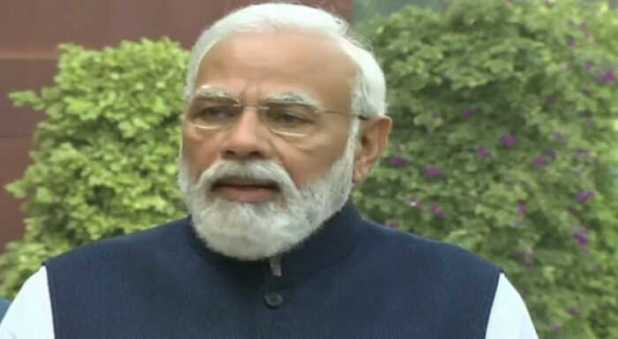
New Delhi, March 29 : In a veiled attack on West Bengal Chief Minister Mamata Banerjee, Prime Minister Narendra Modi on Tuesday asked people to “oppose the mentality of violence and anarchy” in the society. Addressing Matua Dharma Maha Mela virtually at Shreedham Thakurnagar in the state on the occasion of 211th birth anniversary of Harichand Thakur ji, he said that threatening with violence due to political opposition is a violation of the rights of others. “It is our democratic right to participate in political activities. But due to political opposition, if one stops us by threatening with violence, then it is a violation of the rights of others, he said adding “So it is our duty to oppose the mentality of violence and anarchy anywhere in the society.” The Prime Minister was indirectly referring to the March 21 killings in Bengal’s Birbhum district in which the death toll rose to nine on Monday. “Today when we see bloodshed for selfishness… when there is an attempt to divide the society, when we look at the tendency to make distinctions on the basis of language and region, the philosophy of Sri Sri Harichand Thakur ji becomes even more important,” the PM said. The Prime Minister urged the Matua comm ty to raise their voice if anyone is harassed anywhere. “Today I would also like to make a request to all the friends of Matua society. To eradicate corruption from the system, you have to further increase the awareness in society. Definitely raise your voice if anyone is harassed anywhere. It is our duty towards the society and also towards the nation,” he said. He said that the Matua Dharma Maha Mela is also going to strengthen the values of Ek Bharat Shreshtha Bharat. The Prime Minister said that Indian culture and civilisation is great because it has continuity and flow. “It’s like a river that keeps making its way forward. The greatness of this culture can be attributed to reformers like Harichand Thakurji,” he added. Harichand Thakur ji devoted his life for the cause of betterment of the oppressed, downtrodden and deprived persons in undivided Bengal during the pre-independence era. The social and religious movement started by him originated from Orakandi (now in Bangladesh) in 1860 and led to the formation of the Matua Dharma, the PMO said. ASU SHK2217

